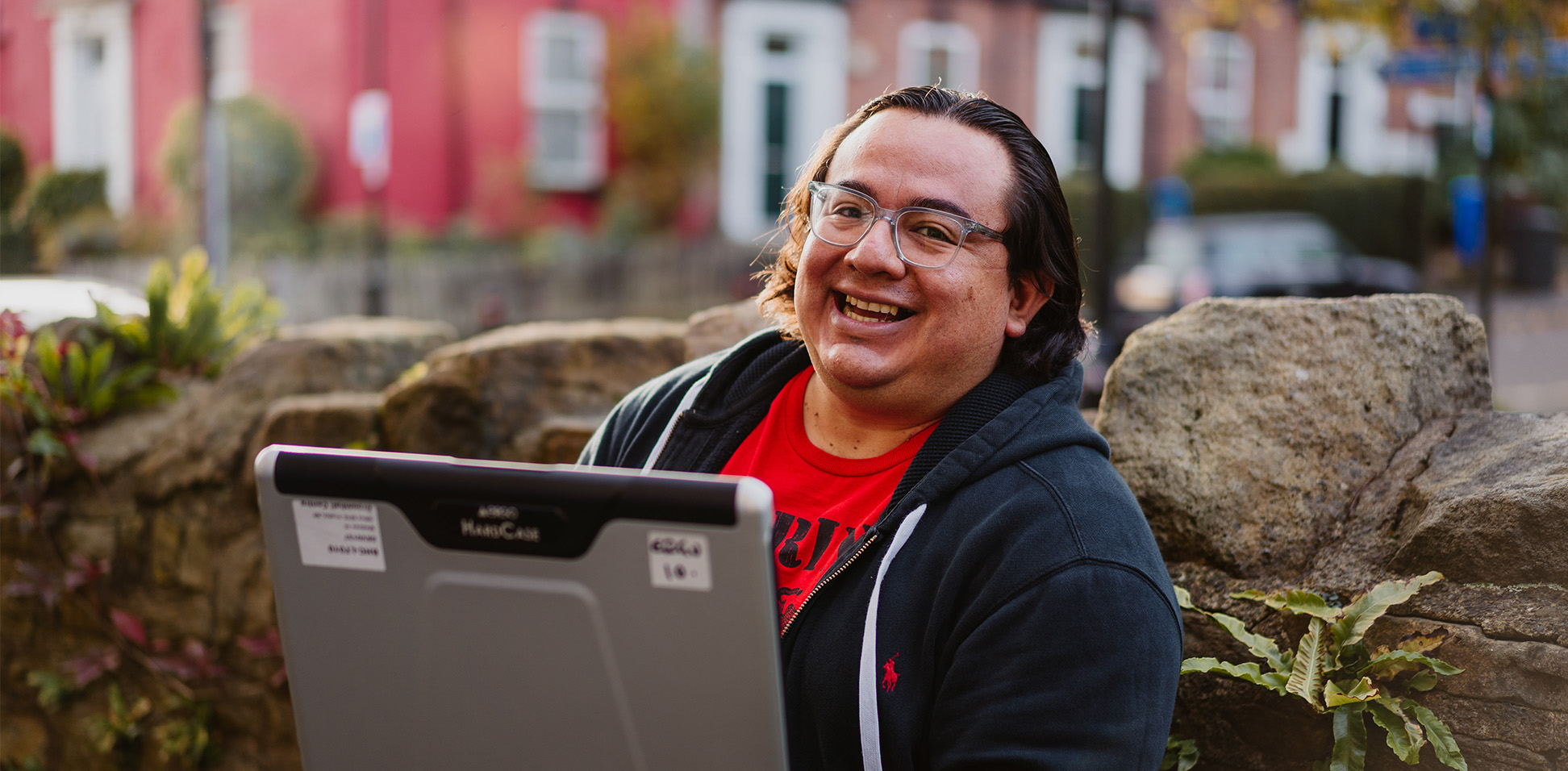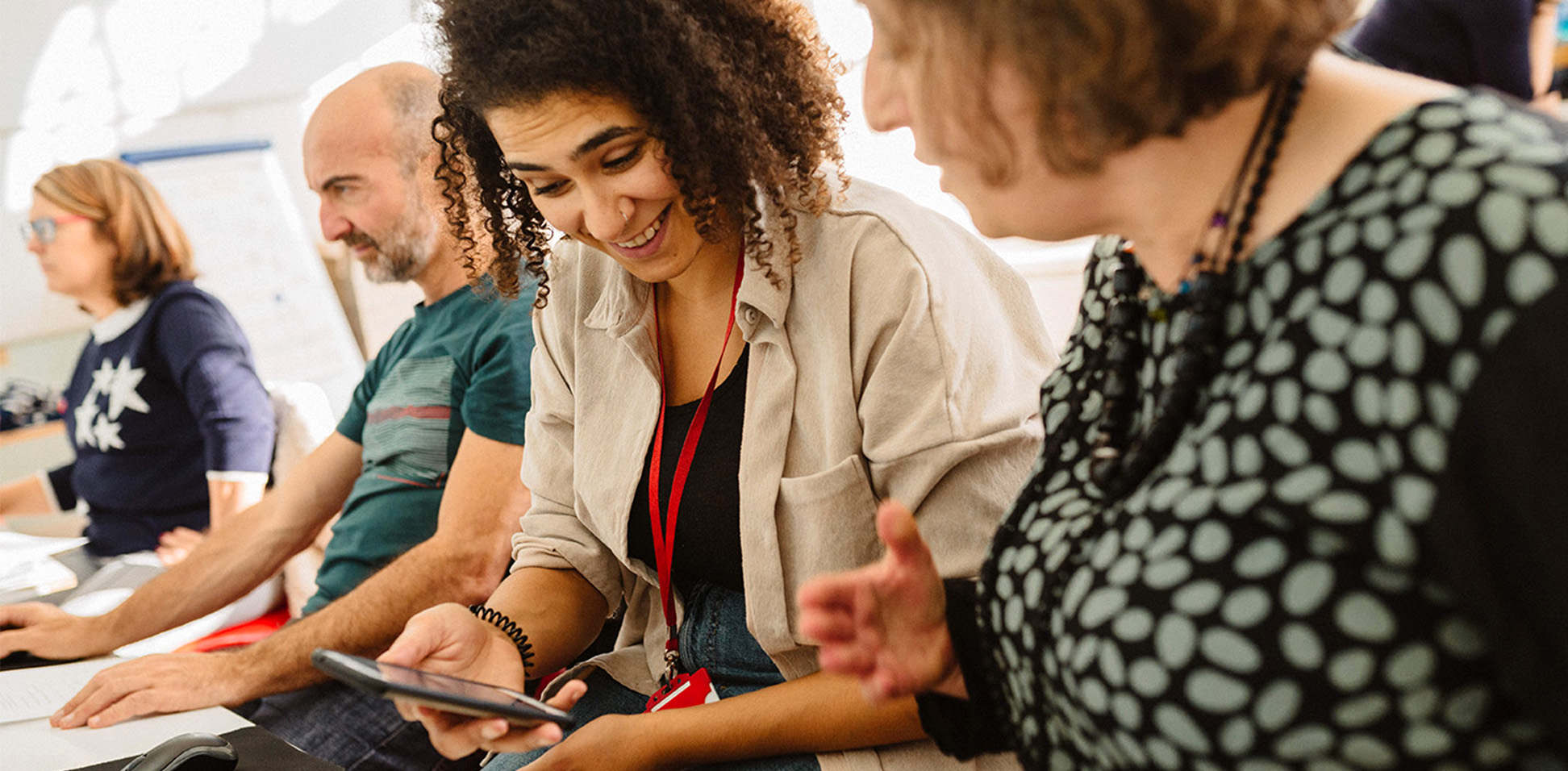Stories from the Network: Digital Voice
National Digital Inclusion Network member Digital Voice share what they're doing to fix the North East digital divide.
The North East digital divide
In the North East, the percentage of people considered digitally excluded is the highest in the UK - and this is not split equally across the population. Older people, those who are financially vulnerable and those who live with a condition that impairs their use of communication services, are more likely to be digitally excluded.
"Behind these statistics and percentages are real people with real struggles and, whilst we can’t solve everything, Digital Voice’s work is having an impact."
Digital Voice's in Touch digital skills courses cater for absolute beginners and those who are very resistant or anxious about any sort of digital technology. Their InterGen programme is also a great example of work that's happening in the region to foster digital equity in a really engaging and creative way.
The Intergen programme
The digital skills programme recently brought together children from a local primary school with a group of older people. The children, who are digital natives, helped the older people to use an iPad in a fun way - for example, taking a photo together and then showing how you can crop, edit or enhance the photograph, or exploring where Google Earth can take you from the comfort of your armchair.
The feedback from the older people has been so positive:
“I get energised, I feel a lot healthier, I feel a bit more confident and I feel happier in myself. My mental health is improving.”
“The photos and what you can do to them is brilliant … I’ve enjoyed the whole thing.”
Long term support is needed
The benefits are clear to see, however without longer term support these benefits can be short-lived. Digital Voice has recognised the need for a longer-term strategy, one that requires investment and access to hardware.
What’s next for Digital Voice?
Next year Digital Voice will run a three-phase pilot project designed to benefit two groups of older adults who have limited confidence and digital skills supported by the NHS in Gateshead.
They'll start by making the learning process enjoyable and informal in the first phase to build their confidence. Then, they'll provide them with loaned devices, enabling them to continue learning independently between sessions. Additionally, they'll offer drop-in and one-on-one sessions to help them set up their devices for various digital tasks that are relevant to their needs.
Julie Nicholson, Managing Director at Digital Voice, said:
“We can run any number of short courses but if people aren’t able to access a digital device regularly, then the learning won’t stick; the next stage for Digital Voice is to support people long-term and our new pilot project with the NHS aims to do just that.
Being part of the National Digital Inclusion Network is really important to Digital Voice as it gives us access to like-minded organisations who can offer advice, share best practice and provide the support we need to tackle digital exclusion here in the North East.”


